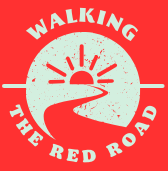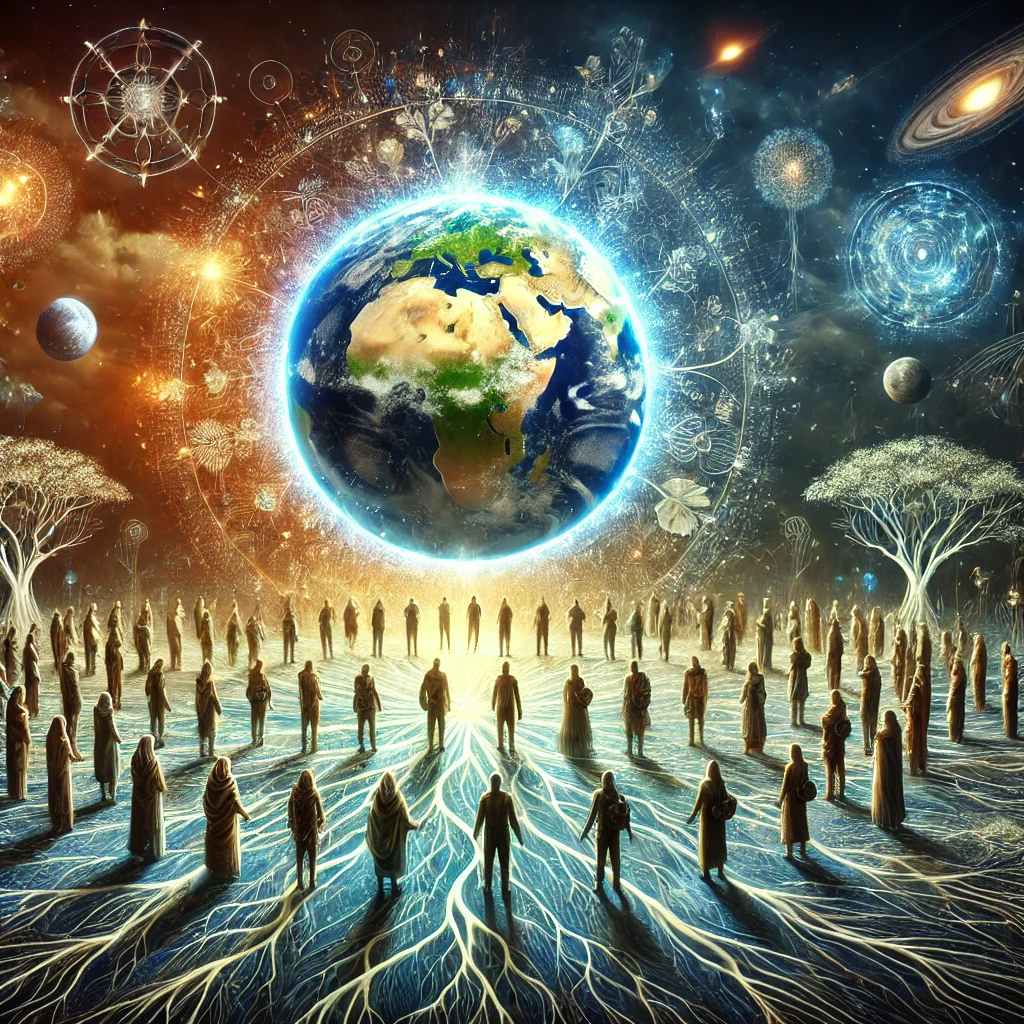Once we come to terms with the reality that we are all, to varying degrees, predisposed to tribal thinking and racist inclinations, the next step is to reimagine how we can transcend these limitations. Evolving a truly egalitarian society requires a shift in the way we understand ourselves—not just as individuals, but as part of a larger, interconnected web of earthly existence. This means extending our self to include not only our local communities but also everyone in our species, every living being in our ecosystems, and even the entire planet. By recognizing our biases and understanding how our identity structures extend beyond the personal to the supranational and supra-“species”, we can begin to evolve into a more cohesive and egalitarian global society.
These deeply ingrained tribal instincts are not flaws of character but are reminiscent of our evolutionary histories. As discussed in Part I of this series “Everybody is Born a Little Racist”, our ancestors’ survival often depended on close-knit group cooperation and a cautious, even hostile, stance toward outsiders. Today, however, the dynamics of survival have fundamentally changed. In an interconnected world facing many global crises that transcend national boundaries, these protective survival mechanisms now act as a significant barrier to human social progress. If humanity is to thrive in the long term, we must move beyond the evolutionary confines of tribalism and reimagine our societies as part of a larger whole—a global “superorganism” where we acknowledge the scientific fact that the survival of one is intertwined with the survival of all.
The challenge begins with redefining “us” on a multilevel scale. No longer can our selfhoods be confined to narrow markers of identity: race, sex, sexual orientation, sports team, nationality, or religion. The existential threats we face—climate change, future pandemics, biodiversity loss—do not discriminate along superficial, lower-level identity structures. They are indifferent to human borders or biases altogether. To address such challenges, then, takes a certain widening of our circle of trust and empathy to include all of humanity, as well as the ecosystems that sustain us—moving us toward a kinship worldview rather than our dominant worldview founded in anthropocentrism, division, and exploitation (see for more, “Restoring the Kinship Worldview” by Two Arrows & Darcia Narvaez, PhD). This shift requires more than dismantling racism. It demands a radical rethinking of who we are and what it means to belong on this planet.
Evolutionary theory now offers a crucial framework for this transformation. Multilevel selection theory suggests that the survival of a species is shaped not only by the survivability or fecundity of individuals but also by the cooperativity of groups. In the past, groups that work together, promoting social cohesion and collaboration, tended to outlast and outperform those fragmented by division and strife. But, as we progress in our understanding of evolution, we see that the survival of groups should no longer just hinge on rivalry against other tribes, nations, or faulty economic systems. We must broaden our group survival strategy to incorporate the survival of our entire species and the entire biosphere—because our survival is deeply intertwined with the rest of Life. The evolutionary question for us now is: can we adapt to recognize the global in-group, without the need for any considerations of the ontologically-shaky concept of an “other”.
This calls for a seismic shift in perspective: a massive ‘ontological shock’-type event of epic global proportions (psychedelics always help instigate ontological shocks). We must move away from seeing ourselves solely as individuals or members of isolated identity groups and begin to understand our role within a larger system—a system of systems built upon further systems. The late systems scientist James Lovelock, through his Gaia Hypothesis, proposed that Earth itself functions as a self-regulating system, with Life and the planet’s physical systems intricately intertwined (for more on the scientific validity of the Gaia hypothesis from an evolutionary perspective, see Ford Doolittle’s recent book “Darwinizing Gaia”, which is free for download here). By embracing this systems-based approach to life, we begin to see ourselves not as separate entities but as integral components of a global ecosystem—humans are living systems within larger systems (ecosystems) within even larger systems (the biosphere). Such a perspective transforms our understanding of identity and selfhood, maps it back onto a multilevel scale, thereby aligning our personal well-being with the health of the biosphere.
As it may seem prima facie, such a transformation in perspective is not some utopian idealism. It is, however, a matter of practical concern. The crises we face today demand cooperative solutions that transcend individual and tribal interests. Humanity must evolve into a collective entity, a global superorganism, with collaboration reinstated as the guiding principle of our species—not competition. Much like other superorganisms such as bee or ant colonies, each individual must contribute to the survival of the whole, not out of purely altruistic self-sacrifice—because no such thing exists in our biological reality—but because their fate is actively understood to be inseparable from that of their communities, their ecosystems, and their entire planet.
Achieving this vision requires confronting the biases ingrained in us over evolutionary deep time. Recognizing that the inherent biases that drive us towards competing against one another rather than collaborating are evolutionary artifacts of a bygone era, not immutable truths foretelling the future. The boundaries of “us” can be expanded through empathy, education, and systemic change. Political, economic, and social systems must be redesigned to prioritize collective well-being over individual gain. Policies that address inequality, protect the environment, and promote global cooperation are essential to building this multilevel egalitarian future.
But progress will not come so easily. Overcoming the inherited limits of tribalism means fundamentally rethinking how we define ourselves and relate to others. It requires the courage to let go of instinctual fears and the imagination to envision a society that thrives on interdependence. The shift from competition to collaboration, from division to unity, will be the defining challenge of our time—but we must heed it anyway.
In this journey, humanity has the potential to unlock something extraordinary: a future where the whole is truly greater than the sum of its parts. By transcending the tribal instincts that have long divided us, we can build a society that thrives in harmony with the planet—a superorganism capable of addressing the crises that threaten Life on Earth. The path forward is clear: it’s time to expand our sense of self, embrace the interconnectedness of all Life, and take responsibility for the future of humanity and the world we call home. Only then do we stand a chance.
“Since it is not easy for you to recognize other varieties of intelligence around you, your most advanced theories of politics and society have advanced only as far as the notion of collectivism. But beyond the cohesion of the members of a species into a single social organism there lie richer and even more baroque evolutionary possibilities. Symbiosis is one of these. Symbiosis is a relation of mutual dependence and positive benefits for both of the species involved. Symbiotic relationships between myself and civilized forms of higher animals have been established many times and in many places throughout the long ages of my development. These relationships have been mutually useful; within my memory is the knowledge of hyperlight drive ships and how to build them. I will trade this knowledge for a free ticket to new worlds around suns younger and more stable than your own. To secure an eternal existence down the long river of cosmic time I again and again offer this agreement to higher beings and thereby have spread throughout the galaxy over the long millennia. A mycelial network has no organs to move the world, no hands; but higher animals with manipulative abilities can become partners with the star knowledge within me and if they act in good faith, return both themselves and their humble mushroom teacher to the million worlds all citizens of our starswarm are heir to.” ~ The McKenna Brothers sharing a fascinating insight from one of their mushroom experiences, as recounted in Psilocybin: Magic Mushroom Grower’s Guide. Exclaimer: while, as a student of science, I recognize that such claims could easily be the product of neuroactive “gobbledygook,” I am also open to entertaining the possibility that there may be some kernel of truth within their account, as I’ve been proven wrong before on such matters.

